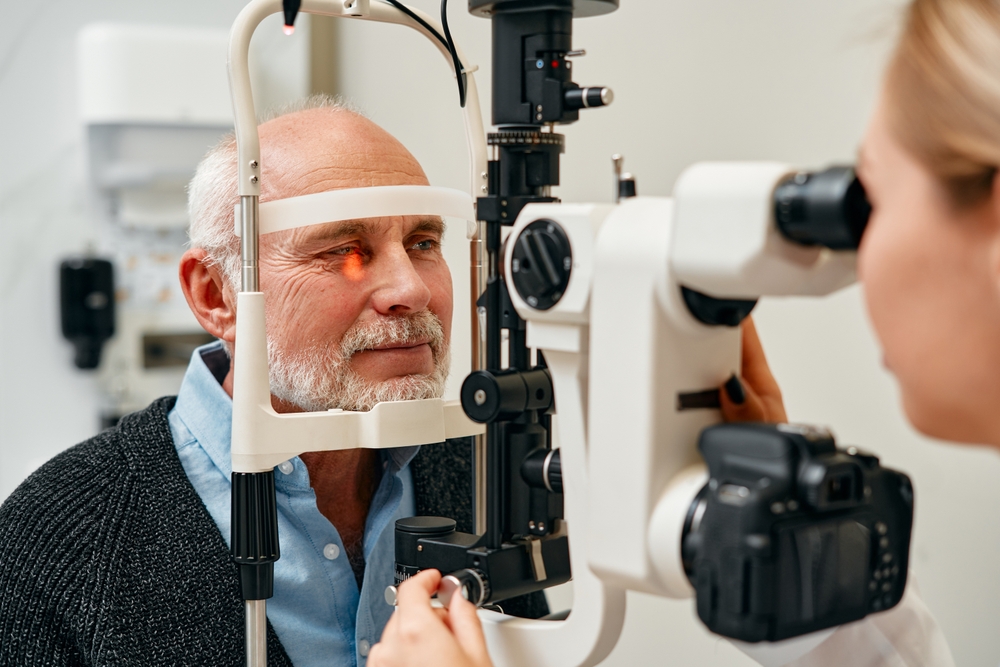
Maintaining good eye health is essential for overall well-being and quality of life. One of the best ways to ensure that your eyes stay healthy is by having routine eye exams.
But what exactly happens during a routine eye exam? Keep reading to learn about the steps of a typical eye exam and why these check-ups are so important!
What is a Routine Eye Exam?
A routine eye exam is a comprehensive evaluation of your vision and eye health performed by an optometrist or ophthalmologist. During the exam, your eye doctor will assess your visual acuity, check for any signs of eye diseases or disorders, and determine if you need corrective lenses or other treatments.
Most people should have a routine eye exam every one to two years, but your eye doctor may recommend more frequent exams based on your age, health, and family history.
What Are the Steps During a Routine Eye Exam?
A routine eye exam typically involves several steps, each designed to evaluate a different aspect of your eye health and vision. Let’s take a closer look at what you can expect during your appointment.
History Taking
Before beginning the physical exam, your eye doctor will ask you about your medical history, family history of eye problems, and any symptoms or concerns you may have. This information helps them tailor the exam to your specific needs and identify any potential risk factors for eye disease.
Vision Check
Next, your eye doctor will check your visual acuity using an eye chart. You’ll be asked to read letters or numbers from a distance, which helps determine if you have nearsightedness, farsightedness, or astigmatism.
Your eye doctor may also use a phoropter, a device that allows them to fine-tune your prescription by having you look through a series of lenses.
Refraction
If the vision check indicates that you may need corrective lenses, your eye doctor will perform a refraction test. This involves using a phoropter or autorefractor to determine your exact prescription strength.
You’ll be asked to look through the device and choose which lens makes your vision clearest.
Eye Muscle and Pupil Testing
Your eye doctor will also evaluate the health and function of your eye muscles and pupils. They may use a small light to check your pupil reflexes and have you follow a moving object with your eyes to assess muscle coordination and strength.
These tests can help identify any underlying neurological problems or binocular vision issues.
Eye Pressure Testing
Measuring the pressure inside your eyes is an important part of detecting glaucoma, a serious eye disease that can cause vision loss if left untreated. Your eye doctor may use a tonometer, which gently touches the surface of your eye, or a non-contact device that uses a puff of air.
If your eye pressure is higher than normal, additional testing may be needed.
Dilation
Depending on your age and risk factors, your eye doctor may recommend dilating your eyes as part of the routine exam. Dilation involves putting drops in your eyes to widen the pupils, allowing your eye doctor to get a better look at the back of your eye, including the retina and optic nerve.
This part of the exam can help detect signs of serious eye diseases like diabetic retinopathy, age-related macular degeneration, and glaucoma.
Why Are Routine Eye Exams Important?
Regular eye exams are crucial for maintaining good vision and eye health throughout your life. Many eye conditions, such as glaucoma and diabetic retinopathy, don’t have noticeable symptoms in their early stages.
By catching these conditions early through routine exams, your eye doctor can provide prompt treatment to prevent vision loss. In addition to detecting eye conditions, routine exams also ensure that your vision is as clear and comfortable as possible.
Even small changes in your prescription can cause eye strain, headaches, and blurred vision. Keeping your corrective lenses up-to-date can help you see your best and feel your best in your daily life.
Is it time for you to have a routine eye exam? Schedule an appointment at VisionFirst Eye Center in Birmingham, AL, today!









